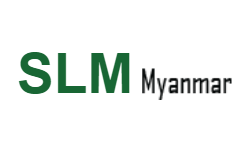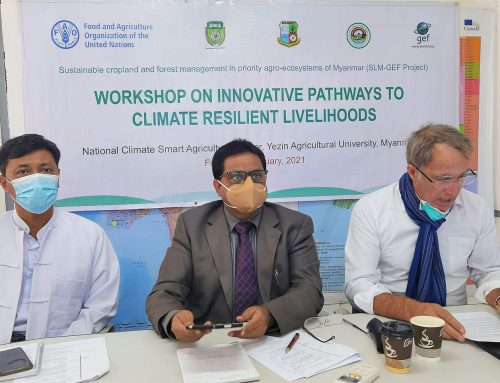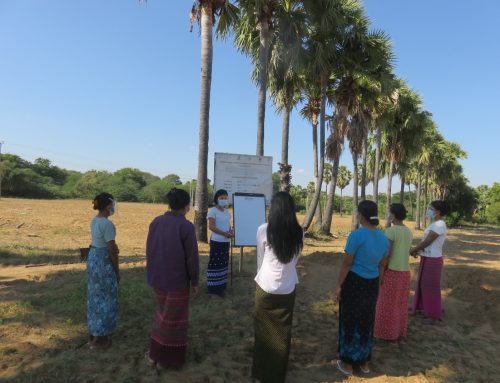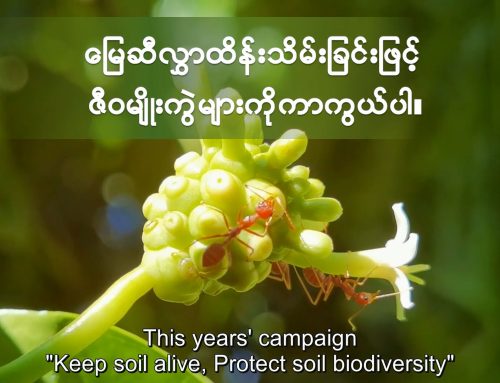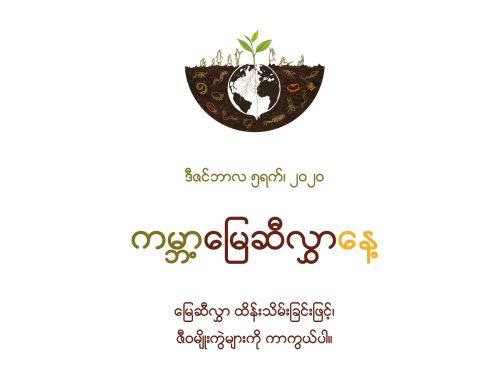 Realizing the impact of climate change as a global and national challenge, FAO has been implementing a GEF funded project “Sustainable Cropland and Forest Management in Priority Agro-Ecosystems of Myanmar (SLM-GEF)” since July 2016, jointly with MoALI and MoNREC to build capacity of farming and forestry stakeholders to mitigate climate change and improve land conditions. This is done by adopting policies and practices related to climate smart agriculture (CSA), sustainable forest management (SFM) and sustainable land management (SLM).
Realizing the impact of climate change as a global and national challenge, FAO has been implementing a GEF funded project “Sustainable Cropland and Forest Management in Priority Agro-Ecosystems of Myanmar (SLM-GEF)” since July 2016, jointly with MoALI and MoNREC to build capacity of farming and forestry stakeholders to mitigate climate change and improve land conditions. This is done by adopting policies and practices related to climate smart agriculture (CSA), sustainable forest management (SFM) and sustainable land management (SLM).
In order to coordinate development, packaging and promotion of best practices and to conduct advocacy activities related to CSA, this project has supported establishment and operationalization of a National Climate Smart Agriculture Center (NCSAC) at Yezin Agricultural University (YAU). The Center was jointly inaugurated by His Excellency Dr Aung Thu, the Union Minister of MoALI on 17th August 2018. In the last one year, the Center has successfully organized several awareness-raising, training and demonstration activities aiming for CSA promotion. The centre also provided library services, measured greenhouse gas emission using gas chromatography machine and organized a national workshop on “Promoting Climate Smart Agriculture in Myanmar”.
 A national workshop on “Green Ecology in Myanmar” was co-organized by FAO and NCSAC/YAU on 29th Aug 2019 at YAU. This workshop was jointly opened by Dr Aung Thu, The Union Minister for MoALI; Ms Xiaojie Fan, the FAO Representative in Myanmar and Dr Nang Hseng Hom, the Rector of YAU. During the opening session, H.E. Minister explained the vulnerability status of Myanmar, as the second most vulnerable country in the world, from extreme weather events related to climate change. Nowadays, Myanmar is exposed to cyclones, floods, heavy rains, droughts, extreme temperatures etc which are becoming more severe resulting to massive displacement of people, destruction of livelihoods and reduction in agricultural production which can potentially lead to food insecurity. H. E. Minister further explained the importance of promoting and upscaling best techniques and practices of CSA, SLM, SFM, agroforestry, water-saving techniques, and agroecology to achieve the sustainable goal by sustainably increasing agricultural productivity and income.
A national workshop on “Green Ecology in Myanmar” was co-organized by FAO and NCSAC/YAU on 29th Aug 2019 at YAU. This workshop was jointly opened by Dr Aung Thu, The Union Minister for MoALI; Ms Xiaojie Fan, the FAO Representative in Myanmar and Dr Nang Hseng Hom, the Rector of YAU. During the opening session, H.E. Minister explained the vulnerability status of Myanmar, as the second most vulnerable country in the world, from extreme weather events related to climate change. Nowadays, Myanmar is exposed to cyclones, floods, heavy rains, droughts, extreme temperatures etc which are becoming more severe resulting to massive displacement of people, destruction of livelihoods and reduction in agricultural production which can potentially lead to food insecurity. H. E. Minister further explained the importance of promoting and upscaling best techniques and practices of CSA, SLM, SFM, agroforestry, water-saving techniques, and agroecology to achieve the sustainable goal by sustainably increasing agricultural productivity and income.

Ms Xiaojie Fan highlighted the impact of climate change globally and in Myanmar and FAO’s contributions to livelihood improvement and economic development towards achieving the Global Sustainable Development Goals in Myanmar. Explaining in brief the current works of FAO on CSA and agroecology, Ms Fan also assured of FAO’s continued commitment to collaborate closely with the Government of Union of Myanmar and other partners in promoting policies and practices of CSA, SLM, SFM, and agroecology in Myanmar, for the achievement of the joint goals of sustainable development of the country.
Dr Nang Hseng Hom, the Rector of YAU welcomed all the participants and extended heartfelt thanks to H.E. Minister, FAO Representatives in Myanmar and all the distinguished guests and participants for their presence in the workshop. Dr Nang expressed her high appreciation to FAO for the supports in establishing the National CSA Center and providing supports to organise such workshops. She explained the objective of the workshop to share knowledge and experiences on concept and practices applicable to Myanmar, including CSA, SLM, SFM, agroforestry, water management, agro-ecology, etc.
 More than 150 participants representing relevant Government Departments from MoALI and MoNREC, YAU, State Agriculture Institutes, International organizations/INGOs/NGOs (Cesvi, AVSI, COLDA, IIRR, Helvetas, Swiss Aid, IRRI, JICA, JIRCAS, ICRAF, IWMI), UN Agencies (FAO, WFP and UNOPS) and Donors participated in the workshop. A total of 14 papers related to four sub-themes of the workshop: CSA/SLM/SFM concepts/techniques, water-saving techniques and irrigation, agroforestry and agro-ecology, were presented by various speakers representing YAU, IIRR, ICRAF, IWMI and FAO. This was followed by a group discussion and presentations on issues/challenges, opportunities and recommendations for promoting CSA/SLM/SFM concepts/techniques, water-saving techniques and irrigation, agroforestry and agro-ecology in Myanmar.
More than 150 participants representing relevant Government Departments from MoALI and MoNREC, YAU, State Agriculture Institutes, International organizations/INGOs/NGOs (Cesvi, AVSI, COLDA, IIRR, Helvetas, Swiss Aid, IRRI, JICA, JIRCAS, ICRAF, IWMI), UN Agencies (FAO, WFP and UNOPS) and Donors participated in the workshop. A total of 14 papers related to four sub-themes of the workshop: CSA/SLM/SFM concepts/techniques, water-saving techniques and irrigation, agroforestry and agro-ecology, were presented by various speakers representing YAU, IIRR, ICRAF, IWMI and FAO. This was followed by a group discussion and presentations on issues/challenges, opportunities and recommendations for promoting CSA/SLM/SFM concepts/techniques, water-saving techniques and irrigation, agroforestry and agro-ecology in Myanmar.
Mr Xavier Bouan, the Senior Technical Advisor of the SLM-GEF Project, closed the workshop by summarizing the key findings of the workshop and extending vote of thanks to all the participants for their active participation and genuine contributions.
Jitendra Jaiswal
Video credit to MRTV
